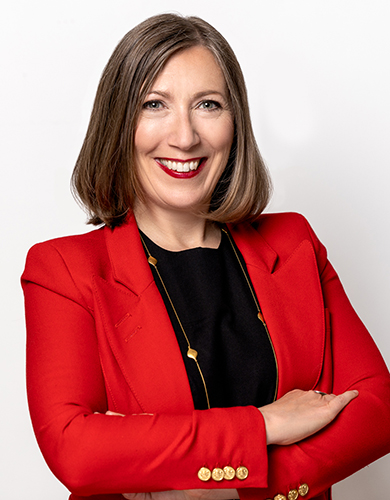
Lassonde School of Engineering Dean Jane Goodyer invites community members to learn more about the School’s work to dismantle barriers to education through innovative approaches to 21st century learning.

This September, for the first time in Canada, students at Lassonde will be able to earn a full-time salary while pursuing a completely work-integrated degree throughout the next four years. This one-of-a-kind program, Digital Technologies, is a scalable model that complements traditional university programs by offering another approach to learning.
Eighty per cent of the program is experiential, so students apply their theoretical learning immediately and continuously on the job, while 20 per cent of their work time is dedicated to academics, delivered during intensive five-day block periods at the Markham Campus every six to seven weeks.
By removing cost barriers and providing students with a steady income, the model facilitates more affordable, inclusive education pathways to rewarding careers and presents a real opportunity to empower disadvantaged groups to become more socially mobile.
According to Deloitte, Canada could increase its labour force by an estimated 1.7 million workers by eliminating barriers facing underrepresented groups looking to enter or advance in the workplace. This includes women, older people, those with disabilities, Indigenous and racialized peoples, and immigrants.
Before Canada can advance as a global leader in the digital economy, we need to address the acute tech talent shortage, exacerbated by the pandemic and hybrid work. Innovative post-secondary education programs, like Lassonde School of Engineering’s new Bachelor of Applied Science in Digital Technologies (BASc) degree, built on proven models in the U.K. and New Zealand, are helping make this happen.
We are currently working with more than a dozen companies to post, interview and hire students from among more than 400 applicants, ranging from graduating high school students to seasoned professionals looking to upskill or reskill in the information and communications technology (ICT) sector.
A few of those businesses – Ceridian, mimik Technology Inc. and Shopify – have been involved from the outset as “trailblazers” that co-developed the program with Lassonde. A total of 15 organizations, representing various sectors and sizes, collaborated to co-design the curriculum and learning outcomes to effectively prepare the next generation of software developers, cyber security specialists and data scientists.
To close the skills gap and bring fresh ideas and knowledge to the workplace, employers are increasingly leaning into universities to attract and retain not just work-ready graduates, but highly qualified professionals who can anticipate ICT sector needs and help shape their evolution. They want access to emerging expertise, world-class research and specialized resources that only post-secondary institutions and their graduates can provide. On the spectrum of WIL (work-integrated learning), ranging from work placements and internships to co-ops, fully work-integrated programs forge even closer relationships between higher education and employers.
Lassonde’s Digital Technologies program is just one example of how the School is taking risks and trailblazing new post-secondary education strategies in a relentless pursuit of positive change. Throughout this edition of Innovatus, you will read about how we’re challenging the status quo and putting new ideas into action. Each article speaks to how we are advancing one of four key themes in our Strategic Academic Plan 2021-2026. These include leading in creating solutions for a just and sustainable world; empowering our people with perspectives, tools and knowledge; creating opportunities and a welcoming community; and building success through partnerships.
Our vision is to be recognized among the world’s best interdisciplinary engineering schools – a home where engineers and scientists collaborate to improve the world for everyone. We can only do this by working toward the United Nations Sustainable Development Goals (UN SDGs) together. Not just within the four departments of Lassonde, but across York University, as well as other post-secondary institutions and organizations throughout the world. It’s through these interdisciplinary connections that we gain the diverse perspectives we need to solve complex world problems and contribute towards a more sustainable world for all.
In addition to paving pathways from Lassonde, we’re also building new bridges into our School by working with partners to dismantle systemic barriers for youth underrepresented in STEM. Even before students apply to Lassonde, many have been inspired to pursue engineering and science through the School’s kindergarten to industry (k2i) academy. A sandbox of innovation, k2i brings together public school boards and community organizations to develop, test and implement unique solutions that feed into the larger education system to increase equity, diversity and inclusion.
We know the challenges of today and tomorrow represent opportunities that will be met by the people, knowledge and programs we develop. Lassonde is a place where every learner – be it student, faculty, staff, alumni or partner – can explore growth opportunities and continually expand their unique path in a lifelong learning journey. I encourage you to find out more about our School’s achievements by reading this Innovatus issue, and getting in touch to collaborate as we help right the future.
